Upon viewing Tim Burton’s camp Gothic tale inspired by a sitcom from the late ’60s early ’70s, what comes to mind first and foremost is family and the burden of legacy. At the heart of the story is the Collins family, who finds themselves the victim of their predecessors’ success, each failure leading them further and further away from the grandeur that was once attached to their family name.
This feeling of inadequacy only exasperates the emptiness that is clearly not just at Elizabeth Collins Stoddard (Michelle Pfeiffer) centre but also finds itself rotting the entire family unit from the inside out. Each member of the Collins family now sees themselves bound to something that was never their passion in the first place, finding themselves frozen in place by a generational burden.
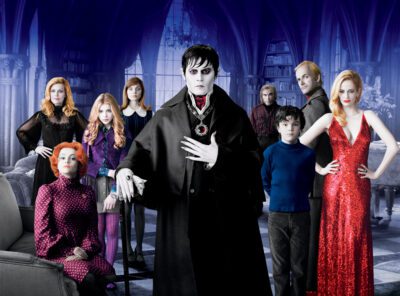
As the matriarch of the Collins family, Elizabeth Collins Stoddard is sided by her vapid and morally bankrupt brother Roger Collins (Johnny Lee Miller) who is just another in a long line of examples of what has lead to the downfall of the formerly affluent family.
Elizabeth is like many other people living off that aforementioned legacy. Going about her days skating through life with a hollowness at her core; her life filled with a lack of personal gratification on the basest of levels. Each day trudges by with her every waking moment weighed down by a sense of self-loathing.
Her daughter Carolyn Stoddard (Chloe Grace Moretz) shows how a new generation far removed from those of yesteryear feels bogged down in past wants and desires, making her feel that any future she has to look forward to will be a bleak grey one and not lit with the technicolour landscape that she would rather explore.
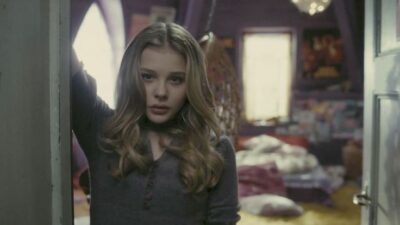
Johnny Depp’s character Barnabas is very symbolic of an old/ageing man trying to get to grips with an ever-evolving world that is rushing on past him, left behind by fashion trends, pop culture, technology and by time itself. Barnabas is just that, a man out of time and left feeling without a true place in society.
This feeling of displacement within society was extremely prevalent in that era, where the clash of two very opposing world views was taking centre stage in the social consciousness. The steadfastness of the nuclear family was at its most fundamental, totally at another end of the spectrum to the burgeoning hippie subculture at that time.
Nowadays just like many other eras, we seem to want to move on from the past at light speed leaving all those who made today possible in our rearview mirror which leaves many feeling forgotten and isolated, just how Barnabas’ feels in his first moments of freedom leading him to return home to satiate his thirst for familiarity.
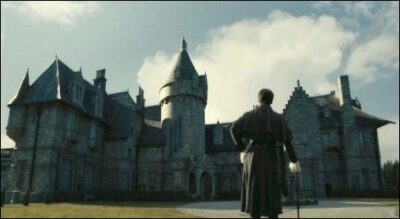
When Barnabas returns to his ancestral home of Collinwood, he first encounters the groundskeeper Willie Loomis (Jackie Earle Haley) and doesn’t waste any time in setting about getting him under his thrawl. Barnabas soon realises that the home he once knew has fallen into ruins, the state of the residence is more symbolism of the fall from grace the once-grand family has endured over time.
While investigating the downward spiral of his descendants, Barnabas discovers that at the root of all the woe the family has suffered throughout time has been Angelique Bouchard (Eva Green) in one guise or another. The very same witch that had cast him to live out his days in dirt-covered darkness of a shallowly grave.
Eva Green plays the part of Angelique to perfection; her grace and presence on the screen are nigh on hypnotic. Green glides through each and every scene with an elegance that is only matched by the menacing shadow she casts over every member of the Collins family, Barnabas in particular.
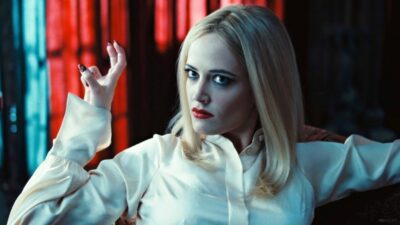
The interactions between Angelique Bouchard and Barnabas are very emblematic of the effects of unhealthy relationships and how they have very real long-lasting consequences. Just like many others in this position, Barnabas is forced to deal with the constant threat of living under the oppressive will of a domineering other, in this case, Angelique.
Whereas Green excels in the role of Angelique, Depp, on the other hand, puts in another Depp type performance, his prosthetic/make-up laden portrayals are a dime a dozen nowadays and what used to be fun and entertaining seems incredibly forced and repetitive at this stage.
I feel that Depp is at his strongest in movies like Blow, The Rum Diary and other more character-driven stories. When Depp is let off the metaphorical leash, he goes so consistently out of bounds that the fervour surrounding his movies has waned at a rapid rate.
Deep attempting to be whimsical and cartoonish but coming across as uncouth and clumsily predatorial, another old man wanting after a woman much younger than himself, which is always a strange aspect of Vampire-centric movies.
Dark Shadows feels laboured but at times, but even with its glaring flaws can be a fun camp romp when it’s rare and fleeting moments of strength give us glimpses of the eccentrically fun Johnny Depp. Mostly in the scenes he shares with the Collins’ family psychiatrist Dr. Julia Hoffman.
The role of Dr. Julia Hoffman is filled by the often dry-but-kooky queen of Goth and silly macabre, Helena Bonham-Carter. Burton’s former spouse is a mainstay in his projects, often finding herself at the centre of the most memorable and best moments in their long list of collaborations.
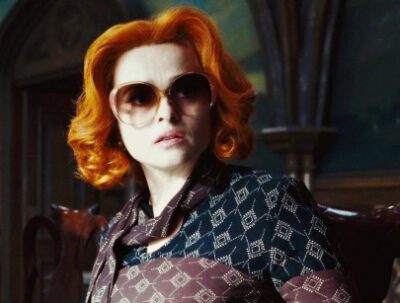
Even though this piece is fanciful and over the top, Burton doesn’t fail to encapsulate the hippie culture of the era, with beautiful visuals backed up by an excellent soundtrack which helps keep the viewer interested in what is otherwise a very silly and little bit of a lame Goth-fest. I think it finds itself somewhere in between a family-friendly affair like The Addams Family and something more adult in the way of Guillermo Del Toro’s Crimson Peak.
Dark Shadows has not aged as well as many of Tim Burton’s earlier outings, the relationship between Johnny Depp and Bella Heathcote at the centre of the piece comes across as creepy and lacking in guile. In this current climate, it feels just like it’s protagonist, outdated and out of place.
Considering that this was the 8th collaboration between Depp and Burton it, unfortunately, gives us the same jaded sense that the Collins family seems to be weighed down by, a sense of a pair that may be trapped inside a creative routine that is now continually bearing less and less fruit.
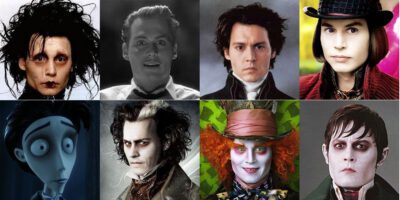
Both men seemingly find themselves locked into an echo-chamber of their own creation, even though all the ingredients are the same the end product from the recipe never seems to taste quite as sweet as the offering that proceeded it. Each further collaboration appears to be lacking in the same joie de vivre that once made their projects such entertainment-filled tour de forces.
To say Tim Burton is one of the most imaginative directors of all time is no overstatement, and I find that he continually finds ways to tell inspired and highly original Gothic tales. But continuously working with the same actor, I think, diminishes the creativity/vision he imagines for the world’s he manifests time and time again because after a while it’s hard not to see Johnny Depp instead of the character he is supposed to be portraying.
It seems to me that it is a little pointless creating all these one of a kind type characters, to then fill these roles each with the same actor takes away from the original idea from the outset. Now instead of a litany of amazingly unique characters, they feel generic and monotone.
I think this might have hindered the success of Dark Shadows from a narrative point of view, as you just see Johnny Depp doing Johnny Depp things and it distracts from Barnabas’ arc as a whole. I found it hard to connect with him, all I saw was this cartoonish over the top caricature of a man and not a man at all.
I didn’t feel his pain or his loss, the anguish he felt from two centuries locked away in a cold, dark purgatory (of his own making in a lot of ways). I didn’t feel the blight of a man that had everything taken from him, and now that he is free, he will stop at nothing to get it all back.
It just never seemed like he was carrying the weight of what had happened to him, don’t get me wrong Depp can act with the best of them when correctly motivated but he never really got out of second gear with this one, showing us that he finds it hard not to give in to his predisposition for outlandish overacting.
As I mentioned previously Dark Shadows at its best is a fun, Gothic/Hippie romp that encapsulates an iconic era but at its worst, it is a gaudy over the top movie lacking in soul, drive and brimming with a cavalcade of mistakes and poor choices causing what should have been a triumph for Burton to ultimately fall flat.



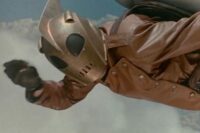
Do you consider the old Dark Shadows a sitcom? Why? It is more of a gothic soap opera. I guess I should eventually see this, but got burned by Johnny Depp’s mad hatter that looked more like a horrified Liz Frasier.